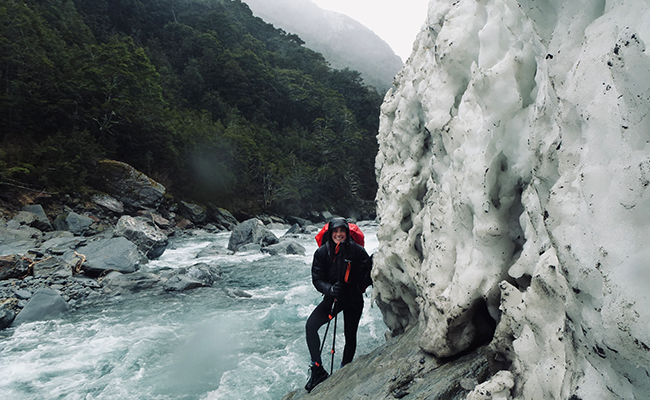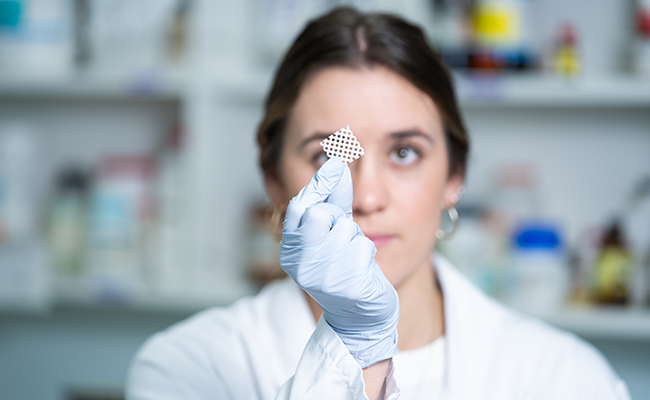
PhD candidate Gretel Major will travel to Antarctica in November as part of the Homeward Bound programme. PHOTO: SUPPLIED
This year is set to be a big one for bioengineering PhD candidate Gretel Major.
Next month, the 26-year-old University of Otago, Christchurch student will hand in her PhD dissertation and finish the year-long Homeward Bound programme.
Then, in November, the programme will culminate in a three-week trip to Antarctica.
“Going on this voyage for three weeks is something that it totally scary but exciting as well,” Major says.
“It's a once in a lifetime opportunity.”
Founded by Australian leadership expert Fabian Dattner, Homeward Bound supports women in STEMM (Science, Technology, Engineering, Maths and Medicine) and aims to equip female scientists from around the world with the skills to be collaborative, legacy-minded and drive change. About 100 women are involved each year.
As a woman in science, Major joined the programme to gain the necessary skills to be an effective leader in the field.
“Furthermore, there is a huge gender bias in healthcare with a lack of funding to support women's health issues. To have the most impact on patient outcomes, as a future female leader in science I want to be strategic and gain visibility to ensure my research is translated clinically.”
The programme is held online and every two weeks women meet virtually to learn leadership, visibility and strategic skills and think about them in the context of climate change.
“We learn what our values are, what our message is, and how we can be better at communicating that. Not everyone has the same agenda for doing the course.”
As one of the youngest in the programme, Major is surrounded by many high-profile women, including those who lead businesses and are involved in policymaking.
“It's given me confidence to realise, no matter what your title is, everyone is in the same boat and trying to achieve the same thing.
“I've definitely opened up and been able to think a lot more about why I'm doing this, what's important to me, what's worth spending time on.”

University of Otago, Christchurch PhD candidate Gretel Major is working to develop reconstructive alternatives for women who have undergone a mastectomy after a breast cancer resection. PHOTO: SUPPLIED
The programme requires about five hours of work a week which, when paired with the final year of her PhD studies, means her life can get a bit full-on.
But that is how she likes it.
“It's been good to juggle a few things.
“Obviously life isn't about just having one goal all the time. It's been a good way to manage two goals at once.”
While much of the programme's work is self-motivated, one aspect required is outside help.
Major had to ask eight people in her life, who are not involved in the programme, to answer a quiz anonymously and honestly about her strengths and weaknesses.
“Based on that it gave me an indication of what I'm good at, what my weaknesses are and how people perceive me.”
She completed the quiz herself and compared the results with the help of a life coach.
“What you realise is you think you're a worse person than other people think,” she says, laughing.
With the programme set to finish, Major is looking forward to the trip to Antarctica.
It will involve a series of on-board and land-based sessions and experiences covering themes such as the impact of climate change in Antarctica, Antarctica's unique governance model and its ecosystem.
“Antarctica is experiencing the most radical warming of everywhere in the world, so we'll be trying to understand why that's happening and what we can do to address it.”
Since it will be the first time the women have met in person, they will also share their stories and get to know each other.
Building relationships is an important part of the programme and, once its completed, the women join an exclusive network of alumni to work on projects that will potentially impact our global collective future.
“That's sort of the ideal goal at the end of the course, to form this network of people who can work within their field, or across field, on projects in science, especially with a climate change focus.
“I'm so excited to be part of that.”
Major is fundraising for her trip to Antarctica and needs your help. To give, go to: https://chuffed.org/project/96136-homeward-bound-voyage